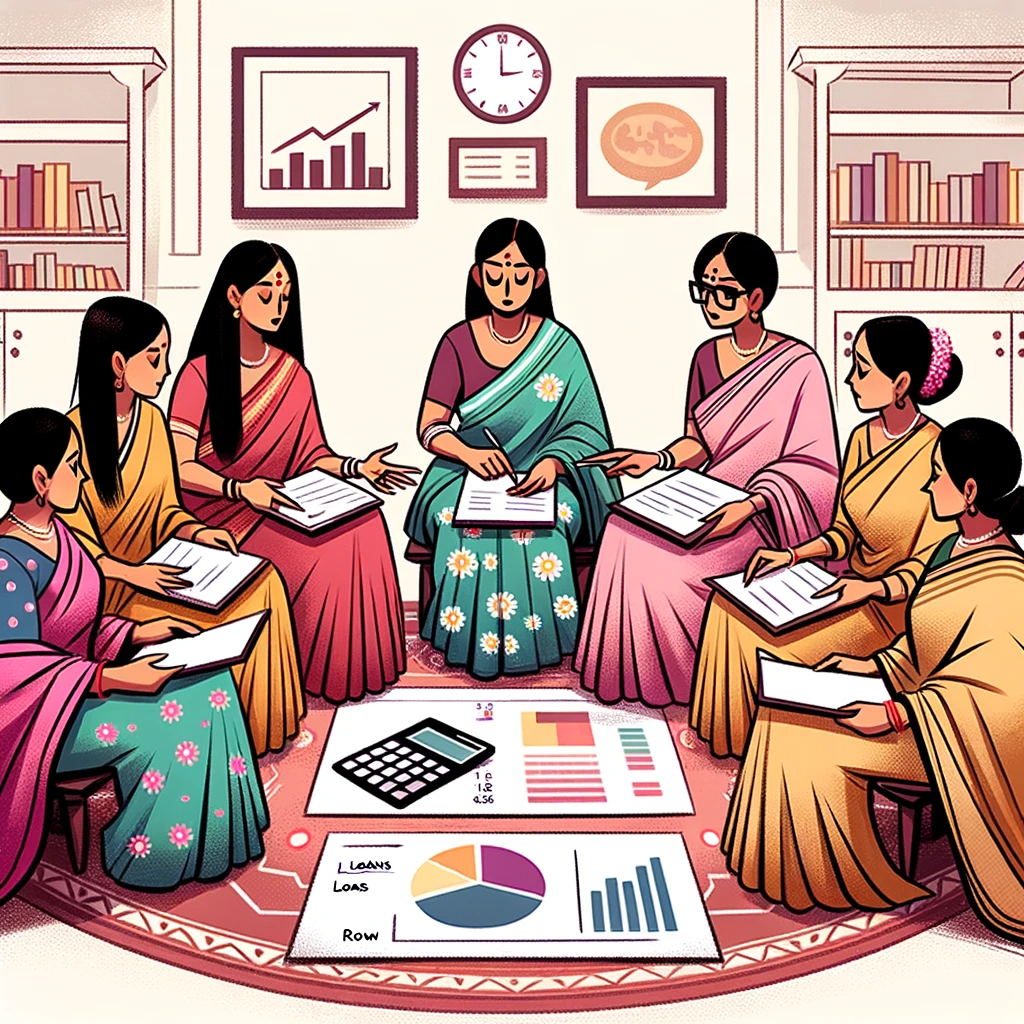Breaking Barriers: How MSME Schemes are Transforming Women's Entrepreneurship

In the contemporary economic environment, Gender parity has emerged as an essential imperative. Women from diverse social backgrounds are now actively participating in the MSME sector, previously dominated by male entrepreneurs. In India, the introduction of a number of government incentives for female entrepreneurs has encouraged more women to enter the market. This includes programs from both state and federal governments.
Important role of women in the overall growth of MSME Sector:
Women entrepreneurs have had a tremendous impact on India’s social and economic demographics as a result of their growing presence. Women's active participation in the workforce has benefited millions of families and led to significant job creation.
Micro, Small, and Medium Enterprises (MSMEs) serve as the cornerstone of the Indian economy, offering livelihoods to multitudes of both men and women nationwide. However, women make up only 13.76 percent of the total entrepreneurial population in India. While male entrepreneurs surpass the 50-million-mark, female entrepreneurs are estimated to number approximately 8 million.
- Employment Development:
This suggests that women entrepreneurs not only establish businesses but also create employment opportunities. Women's entrepreneurship is associated with the social position of women and their role as entrepreneurs within society. It can be viewed in two ways: personally, and professionally. Because of their ability to generate jobs for themselves and others, women entrepreneurs wield considerable economic power.
- Economic Development:
It denotes the role of women entrepreneurs in the country's GDP through business establishment and the creation of goods and services. Because of their entrepreneurial activity, women entrepreneurs provide vigor to the market. In this way, they further contribute to the country's enhanced national GDP.
How the government and banks encourage women to start their own businesses:
Indian women have progressed significantly from being financially dependent on men. Women are now self-sufficient. They are financially self-sufficient and make their own financial choices. A number of government and bank initiatives are also explicitly geared at increasing women's financial independence.
Benefits of Savings Accounts: Beyond standard savings accounts, banks offer specially designed savings options for women. These savings accounts completely suit the financial and investment needs of today's Indian women, and they provide competitive features that are in line with modern lifestyle standards.
Loan Advantages: A variety of major financial organizations offer women lower-interest home loans. Banks might provide discounted loan rates if the woman is the primary applicant for a joint housing loan. In addition, when compared to men, women obtain lower interest rates on car loans. Women can save more if the interest rate remains consistent throughout the loan duration. This is particularly true when a family obtains a large loan with the assistance of a female applicant. Aside from low-interest rates, some banks waive loan processing expenses for women.
Government Schemes: Several government-funded schemes for female entrepreneurs have also been introduced. For example, the Bhartiya Mahila Bank (BMB) business loan plan is intended for women who desire to start their own businesses. Another government-sponsored financial initiative for women is the Annapurna Scheme. The program's purpose is to provide financial assistance to women who want to start a catering business. Apart from these two well-known programs, the government has launched a number of other financial efforts to encourage women to start businesses in the country. We will go over these strategies in greater detail below.
Eminent Government Initiatives Empowering Women Entrepreneurs:
Government bodies across the nation are extending alluring incentives to female MSME owners, with the aim of bolstering their enterprises and facilitating smoother access to financial resources.
- Pradhan Mantri Rozgar Yojana
Under this program, women entrepreneurs can obtain financial assistance to help them build their businesses. This scheme is designed to aid women across various industries, startups, and services. This program's primary goal is to empower women by offering loans to assist them in becoming financially self-sufficient. The scheme encompasses various sectors, including agriculture and other business avenues. The most crucial aspect of this initiative is that it provides a 15% discount on project costs up to INR 12500 per worker.
- Trade Related Entrepreneurship Assistance and Development (TREAD) Scheme
This program aims to help women by providing money to initiatives, providing specialized training and counseling, and collecting data on pertinent needs. The policy permits the government to contribute up to 30% of the total project cost, as evaluated by financial institutions. These entities would fund the remaining 70%.
- Annapurna Yojana
Many women are excellent cooks who may generate money by beginning a catering business. This Indian government initiative for female entrepreneurs aims to help women start a catering business. The Annapurna initiative allows women to borrow up to Rs 50,000. This loan has a payback schedule of 36 months and necessitates collateral and a guarantor to be accepted. Annapurna program loans are secured with assets.
- Udyogini Scheme
This training is great for women who want to start their own business but are unsure where to begin. The GOI aims for this scheme to be available to women whose families earn less than INR 1.5 lakh per year, with no prejudice against widowed, destitute, or disabled women. The plan offers cash loans of up to Rs 3 lakh at a low interest rate. The purpose is to help women become self-sufficient by starting their own businesses, particularly in economically developing countries. Women can start their own businesses thanks to financial assistance.
- Cent Kalyani Scheme
This initiative, which will channel MSME financing for new firms, will be immensely beneficial to women who work in MSMEs. This program is designed for women who own or aspire to own a small business. This plan, known as the Cent Kalyani plan, is credited to the Central Bank of India. Women who work in agriculture or retail are also beneficiaries of this program. This plan provides loans starting at Rs 1 crore with no collateral or guarantors required. Furthermore, the interest rate on the Cent Kalyani Scheme's business loan is determined by the state of the market.
Conclusion:
Are you curious about the top government loan schemes for MSMEs and startups? Consult with experts on government financing programs for MSMEs and small firms at Acehours, which offers a one-of-a-kind platform for finding the greatest and most knowledgeable business counselors and consultants.




